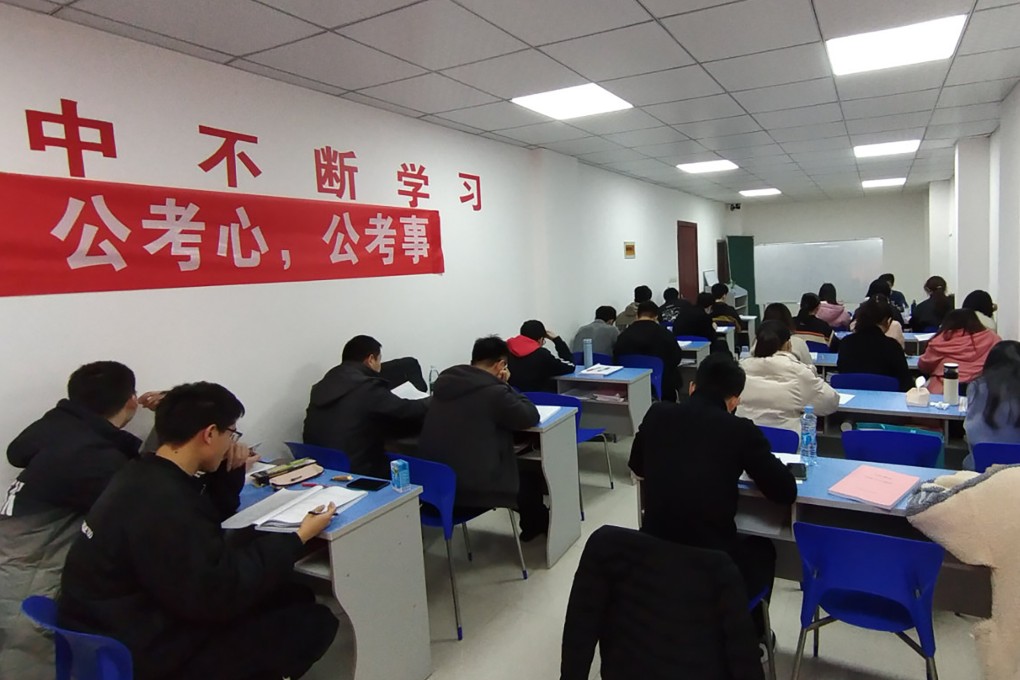Advertisement
Why do Chinese crave stable government jobs over ‘inferior’ private and foreign firms?
- Some Chinese reject US$63,000 job offers at tech giants to take lowly, albeit stable, civil service jobs working as cyber police
- Industry insiders say studying abroad rarely offers Chinese citizens a leg up on the competition for civil service jobs, and many middle-class parents want their kids to stay put
Reading Time:5 minutes
Why you can trust SCMP
59

Over the past few years, Janet Peng’s parents have had to adjust their expectations for her career and that of her old sister, in line with the changing economic and social climate in China.
With mum and dad being private entrepreneurs, they long had a certain career trajectory in mind for their children.
Like many young people from affluent middle-class families in Shenzhen, China’s tech and financing hub, Peng’s sister went abroad for graduate studies after earning her university degree in 2014.
Advertisement
“At that time, my sister and my parents thought that an ideal career involved studying abroad and then working at a Hong Kong or Shenzhen investment bank in the fintech industry,” said Peng, a 20-year-old second-year university student in Guangdong.
But now, Peng says her parents are encouraging her to prepare for the national civil service exam, and her 30-year-old sister is already studying as well.
Advertisement
Advertisement
Select Voice
Select Speed
1.00x